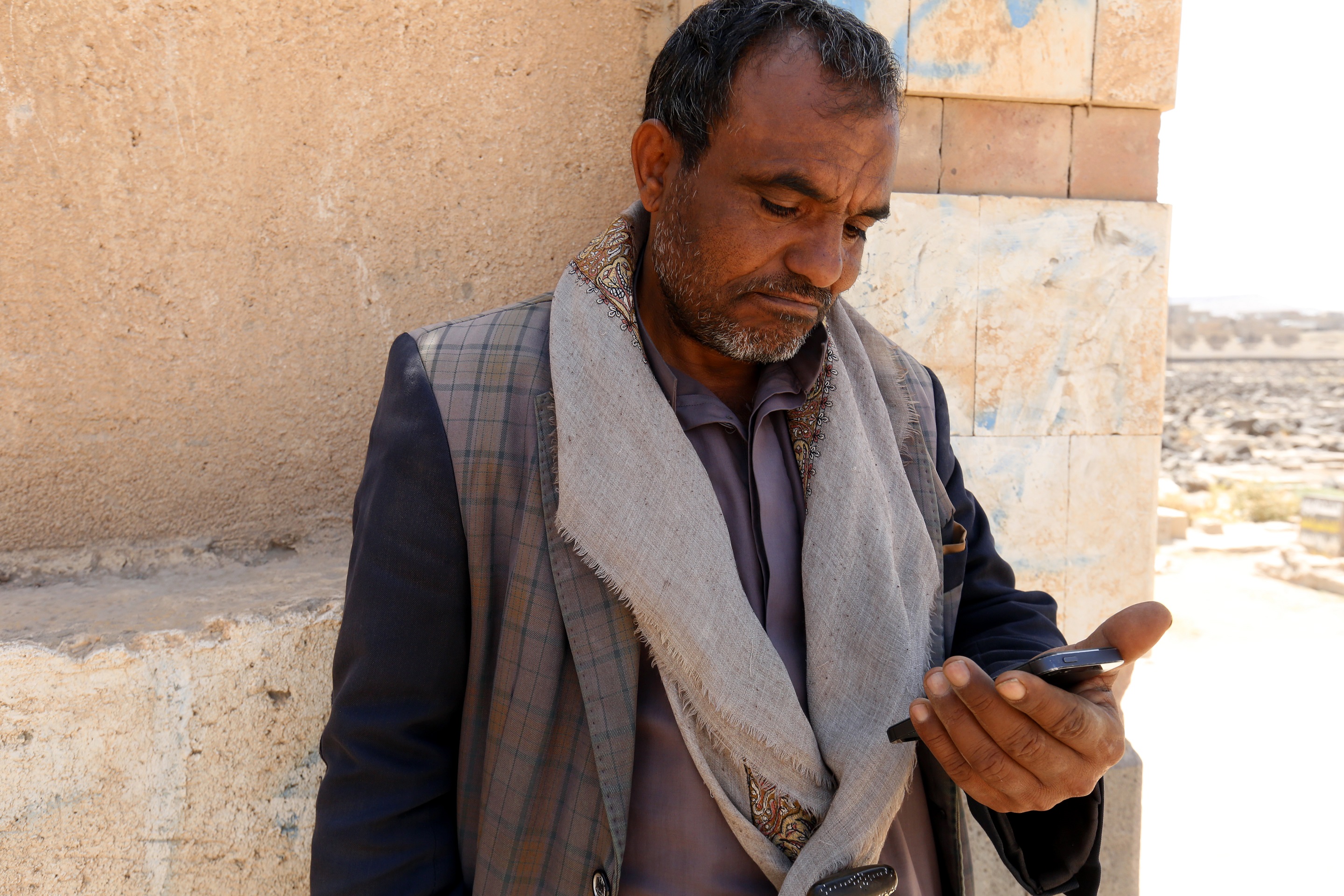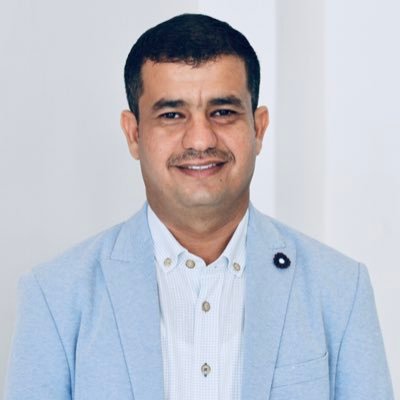يل من التطبيقات التي تعمل على الهواتف النقالة تتدفق كل يوم عبر المتاجر المختلفة، والكثير منها يعد كنزا للصحفيين، خاصة الاستقصائيين الذين يبحثون عن مصادر دقيقة للمعلومات المدعمة بالصور ومقاطع الفيديو والخرائط وصور الأقمار الصناعية.
طوال سنوات عملي كناشط على مواقع التواصل الاجتماعي في نشر الأخبار المتعلقة بالأزمة اليمنية، وأنا لا أتوقف عن ملاحقة كل ما هو جديد من تطبيقات الهواتف النقالة التي تمثل بعضها ما يشبه العصا السحرية الكاشفة للكثير من الغموض.
في العام 2021، نشرت في صفحاتي على مواقع التواصل الاجتماعي عددا من القصص الاستقصائية حول قيام قوات التحالف السعودي الإماراتي ببناء عدد من القواعد العسكرية الضخمة في الأراضي اليمنية دون علم الحكومة اليمنية الشرعية المعترف بها دوليا. وقد ساهمت تلك القصص في الكشف عن قضايا كانت ما تزال غامضة لدى الرأي العام اليمني والعربي، وتفاعلت معها وسائل الإعلام المحلية والدولية ومنها قناة الجزيرة.
اعتمدت في البحث وإنتاج تحقيقاتي الاستقصائية على تطبيقات الموبايل كتطبيق Google Earth، وتطبيق الخرائط الخاص بشركة آبل وتطبيق MarineTraffic الخاص بتتبع حركة السفن، وكذلك تطبيق Flightradar24 الخاص بتتبع مسار الطائرات. كما استعنت بتطبيقات أخرى تختص بالمونتاج والجرافيك كتطبيق المونتاج LumaFusion وتطبيق تصميم السرد الرقمي Canva.
تكشف القصة الاستقصائية الأولى (1) بالاستعانة بصور الأقمار الصناعية المسجلة من تطبيق Google Earth قيام القوات الإماراتية ببناء قاعدة عسكرية ضخمة في مطار الريان الدولي بمحافظة حضرموت شرقي اليمن، دون أن تعلم الحكومة اليمنية أو توافق على بنائها. قمت بتحريك الصور وتحويلها إلى مقطع فيديو، بحيث يكون هناك تركيز دقيق على منشآت القاعدة المستحدثة، مستفيدا من خاصية التسلسل الزمني لإظهار الفرق بين وضع المطار في السابق وكيف يبدو في الوقت الراهن. قمت أيضا بإضافة تصاميم بصرية ونصوص على الفيديو من أجل توضيح المشاهد المصورة، وأعددت مقطعا صوتيا سجلته عبر تطبيق Voice Record ثم نقلته إلى تطبيق المونتاج ونشرته على صفحاتي على مواقع التواصل الاجتماعي.
أما القصة الاستقصائية الثانية، فقد استعنت بتطبيق الخرائط الخاص بشركة Apple وهو تطبيق مجاني مفتوح المصدر، يتميز عن تطبيق Google Earth بتوفيره صور حديثة مكنتني من الكشف عن قيام القوات السعودية ببناء قاعدة عسكرية داخل مطار الغيضة بمحافظة المهرة اليمنية الحدودية مع سلطنة عمان.
كانت مفاجأة بالنسبة لي عندما وجدت تلك المشاهد التي لم تعرض من قبل، فاستخدمت خاصية Screenshot لالتقاط صور ثابتة للقاعدة الجديدة في المطار. ومن خلال مصادري الخاصة، توصلت إلى بعض المعلومات عنها. بعدها، استعنت على الهاتف النقال بتطبيق Canva الذي يوفر خصائص مجانية محدودة، وأخرى كاملة عبر اشتراك شهري أو سنوي رمزي، حيث قمت بإنتاج وسرد قصة معززة بالصور الجديدة والملاحظات المكتوبة على التطبيق، ثم نشرتها على صفحاتي على مواقع التواصل الاجتماعي، لتتفاعل معها وسائل الإعلام اليمنية بشكل كبير من خلال الأخبار العاجلة والتقارير والتحليلات المعمقة عن حقيقة تلك القاعدة ودورها.
القصة الاستقصائية الثالثة (2) كانت بعد حصولي بشكل خاص على فيديو قصير يظهر سفينة تقوم بتنزيل معدات وعربات وأسلحة في جزيرة ميون اليمنية الواقعة على مضيق باب المندب. وسائل إعلام دولية كانت قد كشفت عن قيام قوات التحالف السعودي الإماراتي ببناء قاعدة عسكرية جديدة في الجزيرة دون علم الحكومة اليمنية، لكن التحالف سارع بعد ذلك بوقت قصير إلى نفي الخبر وأكد أنه لا وجود للقوات الإماراتية في الجزيرة.
فور حصولي على ذلك الفيديو سارعت إلى استخدام تطبيق MarineTraffic ولاحظت وجود سفينة راسية في جزيرة ميون. ومن خلال اشتراك رمزي لا يتعدى دولارا واحدا، وفر التطبيق كل بيانات السفينة والتي أظهرت أنها سفينة الشحن الإماراتية "نعيمة"، وأنها كانت قادمة من ميناء المكلا بحضرموت. قمت بعد ذلك بحفظ تلك البيانات كصور وأنتجت قصة رقمية معززة بالفيديو الخاص الذي يظهر السفينة إضافة إلى بياناتها من التطبيق. وفور نشري القصة على مواقع التواصل الاجتماعي تفاعلت معها وسائل الإعلام المحلية والدولية ومنها الجزيرة التي فتحت تغطية خاصة في نشرات الأخبار.
ثمة العديد من المصادر المفتوحة التي استعنت بها في إنجاز كثير من القصص الاستقصائية الإخبارية مثل تطبيق Flightradar24 الخاص بتتبع مسار الطائرات والرحلات الجوية، وهو تطبيق هام للصحفيين لمعرفة حركة الطائرات وبياناتها الخاصة. ساعدني التطبيق في كثير من الأحيان في الكشف عن توقف نشاط عدد من المطارات السعودية، وما تواجهه حظيرة الطائرات من صعوبات في التحليق أو النزول لحظة قيام الحوثيين بمحاولة قصفها بطائرات مُسيرة.
هناك تطبيقات أخرى تعد أيضا مصادر مفتوحة للصحفيين، من بينها تطبيق الطقس Windy الذي ساعدني في نشر التنبيهات الخاصة بالطقس لمتابعيّ في الداخل اليمني، في حالات الاضطرابات الجوية والمنخفضات والأعاصير، حيث يفتقد المواطن اليمني لمصادر أخبار الطقس المحدثة والدقيقة. لقد كان لما أنشره بالاستعانة بالتطبيق أثر مهم في توعية الناس لأخذ الحيطة والحذر عند حدوث الاضطرابات الجوية والأمطار الغزيرة.
إن تلك التطبيقات وغيرها، صارت جزءا من حياتي الصحفية، أتصفحها بشكل مستمر لا سيما عند حصولي على معلومات غير مكتملة تحتاج إلى مزيد من البحث والتقصي. وأستطيع القول إنه صار لازما على الصحفيين التدرب على تلك التطبيقات، وتحميلها في أجهزتهم المحمولة، ومعرفة آلية عملها وكيفية الاستفادة من محتواها البصري في دعم وبناء القصص الاستقصائية الرقمية على منصاتهم الإلكترونية ومواقع التواصل الاجتماعي.
المراجع:




















![Palestinian journalists attempt to connect to the internet using their phones in Rafah on the southern Gaza Strip. [Said Khatib/AFP]](/sites/default/files/ajr/2025/34962UB-highres-1705225575%20Large.jpeg)




















